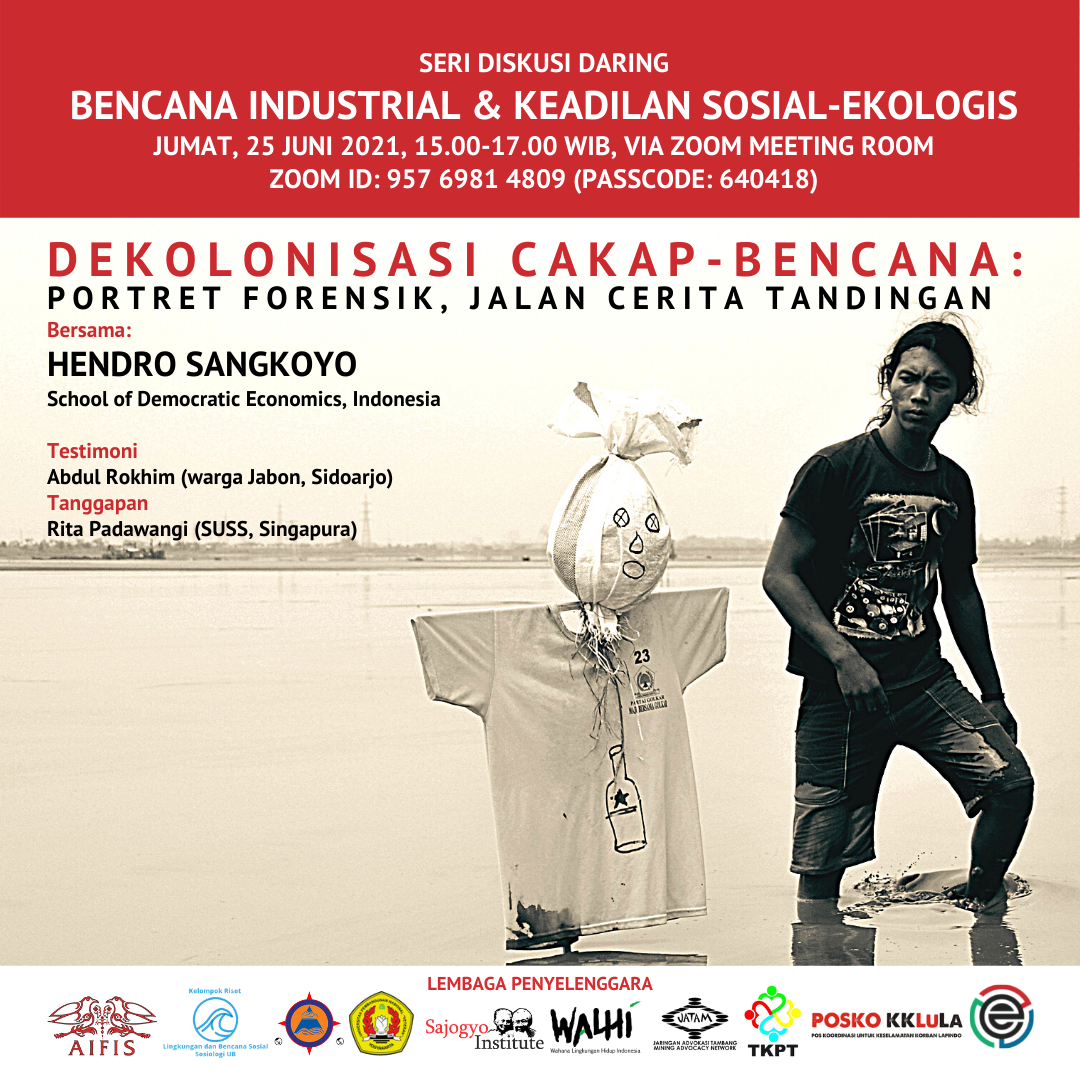SPEAKER
Hendro Sangkoyo (researcher at School of Democratic Economics, Indonesia)
ABSTRACT
In this presentation I use the notion of catastrophe as a shorthand for a phenomenon, process or event —depending on its space-time framing— of the disappearance or interruption in the fulfilment of a set of salient wellbeing criteria of a group of living beings —including humans— as its subject of suffering. To date, the official convention of what does or does not fit to be called a disaster, its further classification, its genesis and tail ends, and how to address and deal with it, have all been the dominion of the political/statal and the knowledge authorities, both are instrumental to the maintenance of global biopolitics. Under such a discursive system and practice, the central predicates pertaining to catastrophe, namely, to mobilize, to cope with and to prevent, in that sequence, got placed within a deterministic and contested imagination of catastrophe’s space-time topology. Against the backdrop of such ruling interpretation and analytics, the present precis intends to advance the notion of catastrophe as part and parcel of the daily living condition under the social-ecological crisis. The scrutiny focuses on the dynamics of catastrophe phenomenon within the context of industrial-urbanism, the dominant mode of social-metabolism in our common life-time|space. Based particularly upon shared understandings from a sustained solidarity and social-learning work over the past two decades, the discussion shall gravitate around the nature of catastrophes, the divergence and conflation of chronotypes and spatiotypes of the phenomenon, social tropes and division of labor of its management, and the economistic transformation of the catastrophe-discourse in tandem with its attendant mobilisatory politics. Such a transformation reveals the fingerprints of colonial and imperial leitmotifs, as well as its oft revealing racist and patriarchal disposition, which manifest remarkably in the ground rules on how pain and the suffering subject under catastrophe should get treated and valorized.
MODERATOR
Siti Maimunah (University of Passay, Germany)
DISCUSSANT
Rita Padawangi (Singapure University of Social Sciences, Singapore)

